News
Danish women’s football takes huge step with new standard contract and minimum wage
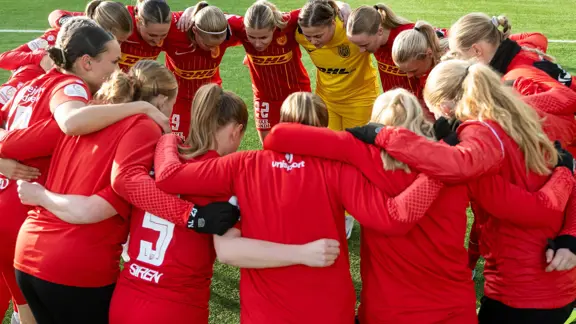
- Danish union Spillerforeningen agrees new standard player contract with Danish Women's League
- Deal provides players with minimum wage, insurance and pension scheme
- Previously the women's pay did not match their employment status
Professional women’s footballers in Denmark will finally enjoy guaranteed decent minimum working conditions, as player union Spillerforeningen agreed a new standard contract with the Danish Women’s League. The deal came into force on 1 January 2025.
"The new standard contract means we will have increased professionalisation in our industry for elite women’s players," said Allan Reese, the union’s deputy director, who, together with player advisor Line Roddik, worked on the deal for almost four years.
The new standard contract for women’s players for the first time in Denmark guarantees minimum wages, injury insurance arranged by the clubs, and access to an employer-administered sports pension and pension savings. The players can use the sports pension after they finish their playing career.
Young players will also have better opportunities to combine football and education through a new youth contract. These significant improvements will make it more attractive to be a professional footballer in Denmark, according to Roddik.
"Until now, there has been a tendency for young players to look abroad because they can have better conditions as a professional footballer around Europe; they can concentrate on football elsewhere and not have to work so much on the side," said Roddik, who played for the likes of Brondby, Rosengard, Olympique Lyonnais and Barcelona, and made over 130 appearances for Denmark.
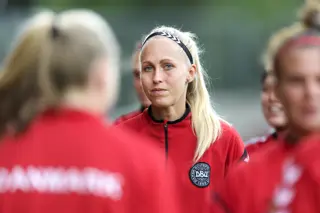
How Spillerforeningen strived to make a difference
Through the years, Spillerforeningen observed that women’s footballers in Denmark had “absurd” contracts, with players essentially being full-time employees on very modest salaries; some would be earning a couple of hundred US dollars a month yet had to be available to the club at all times regardless of their studies or other jobs. This is no longer possible with the new standard contract and minimum wages, which are defined by the type of employment: part-time or full-time.
"The remuneration and working conditions match better with the type of employment thanks to the new contract, and by that also the respect for the players’ work dedication and engagement will increase significantly," said Reese. "The respect for that has previously been almost non-existent."
The minimum wages are not equal to the men’s but they will increase annually until they match the men’s minimum wages in 2029.
As a player advisor, Roddik knows how footballers have been frustrated with the conditions in Denmark. "Many players are a little ambivalent about the new standard contract because they may think that this is how it should be, and that these things should have been arranged before. But you have to remember that it is not something that has come about by itself. Now, we have taken a huge step in the right direction. Are we there yet? We still have a long way to go, but we are on our way. Having been in this game for many years, I think that things are looking good."
Union board member and Brondby player Mie Leth Jans shares Roddik’s sentiment. "It is clearly a huge step that we now have a standard contract that protects players, especially those at the bottom of the hierarchy. It shows that women's football is on the way towards something resembling a real job with fair conditions, where there are certain requirements for the employer: what they must ensure for us and what they have to pay as a minimum."
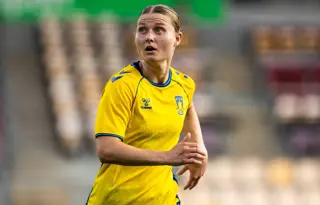
Jans, who played for Denmark and Manchester City before returning to Brondby, which is the first Danish club to introduce full professionalism for women’s players, continued: "Previously it was a grey area where you had to ask around a bit. Clubs had an unwritten rule that you are not allowed to talk about your contract terms. This made it incredibly difficult for a young player to know what she could demand. The fact that we now have crystal clear standards and minimum salaries means that their starting point is much better."
Players can now fully focus on their football career, with the new contract in place. "Being able to prioritise football and not having to compromise is a huge step. Although there is still some way to go," Jans said.
For AGF captain Sarah Dyrehauge, who is also on the board, the insurance is the most important topic in the new contract. Previously, some players mistakenly believed that a regular accident insurance also covered the profession of a football player. "I'm glad I found out early on – or rather was informed – that it wasn't part of the employment contract and that you had to take out insurance yourself because not everyone knows that. You assumed that it was, but it hasn't been – until now."
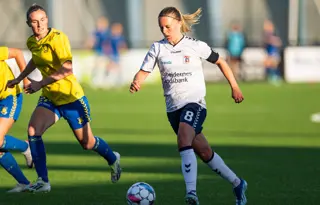
"It's essential," Dyrehauge continued. "We're putting our bodies in a position where we're extremely vulnerable to long-term damage, which can also have an impact on your life after football."
Laerke Tingleff Sondergaard, a board member too, can attest to that. The midfielder, who this week announced she is leaving reigning champions FC Nordsjælland, has not long recovered from a cruciate ligament injury. Tingleff Sondergaard received compensation from her insurance but would have received much higher compensation if she had been insured like her male colleagues.
"As women, we have suffered such a double inequality. Our wages are already at a significantly lower level, and when we get hurt, there are – until now – fewer coping mechanisms that can help, such as insurance. Given our background, such an insurance has a much bigger impact on our finances than on the men’s, and the same applies to pensions.
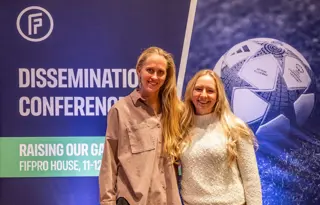
"We have a worse starting point in terms of our rights and resources, and when things go wrong, we don't have the same safety net under us that the men have in their collective agreement. An insurance assures that players have the opportunity to retrain, or that they do not have to stop playing because the finances don't add up."
Dyrehauge added that due to the improved working conditions young girls can now really think about a career as a professional footballer in Denmark. "I myself had the dream of becoming a professional footballer when I was five, 10 and 15 years old, even though I didn't have any female idols to look up to. I looked up to male players. Today, it's completely different and that's important, especially for the young girls in Denmark. That they can see and feel that there is a future in women's football."
